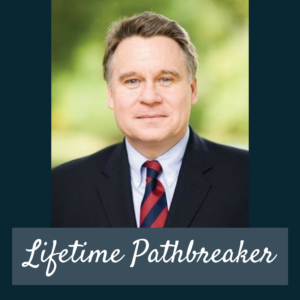- Ten states raise their grade in 2019 through bipartisan, grassroots legislative advocacy
- The majority of states + D.C. have “A” (15) or “B” (21) grades; Maine, South Dakota are only states with “D”
- Tennessee receives highest grade, while Nevada sees most improvement
- Remaining gaps include non-criminalization of children as prostitutes and access to support services for child trafficking victims, where the national average grade is a low “C”
WASHINGTON, Nov. 20, 2019 (GLOBE NEWSWIRE) — Shared Hope International, a non-profit leader in the fight to eradicate domestic minor sex trafficking, today released its ninth annual Protected Innocence Challenge Report. The comprehensive analysis identifies gaps in state child trafficking laws and provides a blueprint for legislative action. Published as report cards for each state, the 2019 report reveals continued improvement in the bipartisan nationwide effort to protect juvenile sex trafficking survivors and to hold buyers and traffickers accountable.
Thirty-five states and the District of Columbia (D.C.) earned “A” or “B” grades in 2019. No state received an “F” grade and only two – Maine and South Dakota – earned “D”s.
“When Shared Hope first issued the report in 2011, 26 states earned failing grades and many did not make it a crime to buy sex with a child; today every state in the country considers sex trafficking a punishable crime,” said Linda Smith, founder and president of Shared Hope. “Analyzing state laws for nearly a decade enables us to understand where progress is concentrated and where gaps remain. The 2019 analysis shows that states are still struggling to provide adequate protections to sex trafficking victims, essentially leaving the women and children behind.”
Grades are based on an analysis of 41 key legislative components that must be addressed in a state’s laws in order to effectively respond to the crime of domestic minor sex trafficking.
While all states have made significant progress since 2011 by passing laws to discourage demand for purchasing sex with a minor – raising the average grade from an “F” to a “B” – child victims often are denied access to justice and restorative services outside of the juvenile justice system. The national grade for victim protection laws is barely a “C” at 71.2 percent.
Other noteworthy 2019 findings included:
- D.C. and nine states – Colorado, Georgia, Mississippi, Nebraska, Nevada, New Mexico, New York, Utah and Wyoming – raised their grades in the last year.
- Nevada, the most improved state, earned an “A” for the first time after passing a new non-criminalization law that protects all minors from being prosecuted for the crime of prostitution and provides access to specialized services. The law also allows juvenile adjudications for prostitution and some non-prostitution offenses resulting from trafficking victimization to be vacated and sealed.
- Nebraska became just the sixth to raise its grade four levels, achieving an “A” in 2019 after earning an “F” in 2011. This year, the state clarified that a specialized child welfare intervention and service response is required in response to all domestic minor sex-trafficking case referrals regardless of the offender’s relationship to the child.
- Tennessee, the highest-ranking state since 2017, again earned the top grade. It extended civil statutes of limitations and removed criminal statutes of limitations, allowing survivors time to recognize their victimization before seeking justice through the court system.
- The number of states that now prohibit the criminalization of child sex trafficking victims for prostitution offenses is 30 plus D.C., compared to just five in 2011.
- There are 19 states that still require “third-party control”, which means a trafficker must be involved to consider the child a victim of domestic minor sex trafficking. When the definition is limited in this way, many survivors are at risk of being misidentified and denied the services they need to restore their lives.
“We’re not just asking states to eliminate the cultural bias that enables them to charge a child with prostitution; we need to also respond to exploited youth as victims of a serious crime,” said Smith. “Asking a survivor to prove they were a victim by identifying their trafficker has the potential to retraumatize the child, which is totally unacceptable. We recognize changing victim protection laws is a heavier lift for states and providing services presents resource challenges. We’ve seen some states take the lead on this and we’re confident others will learn from their example.”
The 2019 Protected Innocence Challenge Report, including state report cards, can be accessed at sharedhope.org/reportcards.


 Serving since 1980, Congressman Smith was a lone voice breaking the silence on the topic of human trafficking at a time when most people had no idea the atrocity was occurring. He was the author and primary sponsor of the Trafficking Victims Protection Act of 2000 (TVPA), which first clearly defined domestic trafficking, and has been steadfast in promoting its reauthorization over multiple years since that original landmark legislation, working across the aisle to ensure protections for victims of human trafficking. In leading the reauthorization efforts this year, Congressman Smith worked diligently to not just pass the law, but improve it. Through his dedication to understanding all facets of trafficking, he is ensuring the TVPA remains responsive to the changing dynamics of trafficking.
Serving since 1980, Congressman Smith was a lone voice breaking the silence on the topic of human trafficking at a time when most people had no idea the atrocity was occurring. He was the author and primary sponsor of the Trafficking Victims Protection Act of 2000 (TVPA), which first clearly defined domestic trafficking, and has been steadfast in promoting its reauthorization over multiple years since that original landmark legislation, working across the aisle to ensure protections for victims of human trafficking. In leading the reauthorization efforts this year, Congressman Smith worked diligently to not just pass the law, but improve it. Through his dedication to understanding all facets of trafficking, he is ensuring the TVPA remains responsive to the changing dynamics of trafficking.






